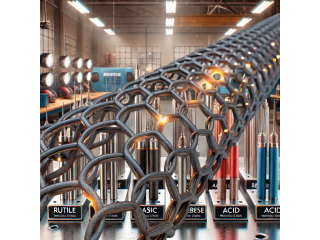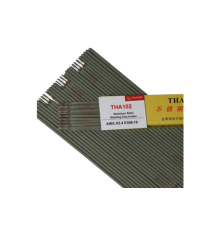Welding electrodes are essential consumables in welding that provide a strong bond between metal parts. In Kazakhstan and Russia, welding is in high demand across industries such as construction, machinery manufacturing, metal structure production, and repair. This article explores the purpose of welding electrodes, their main types, application methods, and their advantages and disadvantages.
Why Are Welding Electrodes Needed?
Welding electrodes are used to create a bond between metal parts through arc welding. During the welding process, the electrode melts to form a strong joint, ensuring the quality and durability of the weld. Electrodes are used in a wide range of applications, from minor repairs to building load-bearing structures, where the quality of the weld is crucial.
Main Functions of Welding Electrodes:
- Provide a stable welding arc.
- Protect metal from contamination during welding.
- Create a reliable, strong bond.
Types of Welding Electrodes
There are several types of welding electrodes, each suited to specific purposes and applications:
Rutile Electrodes
Rutile electrodes are universal electrodes that provide easy arc ignition and create a smooth weld with minimal spatter. They are commonly used for welding alloyed and carbon steels.Basic Electrodes
Basic electrodes offer high strength and resistance to cracking, making them ideal for welding thick steel structures and applications where increased mechanical strength is required.Cellulose Electrodes
These electrodes provide deep penetration and are suitable for vertical and overhead welds. They are commonly used for welding pipelines and other structures requiring high reliability.Acid Electrodes
Acid electrodes produce a smooth and aesthetically pleasing weld but require careful temperature control. They are used in applications where the appearance of the weld is important, such as in construction and repair.Powder Electrodes
These electrodes contain a powder mixture that helps create a strong joint and prevent defects. They are suitable for high-strength structures and are widely used in machinery manufacturing and construction.
Methods and Techniques of Application
The process of using welding electrodes involves several steps:
- Surface Preparation – The welding surface must be cleaned and degreased to ensure high-quality welds.
- Setting Welding Parameters – The settings of the welding machine, including current and voltage, are adjusted according to the type of electrode and thickness of the metal.
- Creating the Weld – The welder smoothly guides the electrode along the joint, controlling the arc and maintaining a stable distance.
- Cleaning the Weld – After welding, the weld is cleaned of slag and inspected for quality.
Areas of Application for Welding Electrodes
Welding electrodes are used in various fields for different purposes:
- Construction — Used to create and repair metal structures, such as building frameworks and bridges.
- Machinery Manufacturing — Applied to weld parts of machinery and equipment where strong and durable connections are required.
- Repair Work — Suitable for the restoration and repair of metal structures, vehicles, and household appliances.
- Oil and Gas and Pipeline Industry — Welding electrodes are essential for assembling and repairing pipelines and tanks that withstand high pressure.
Advantages and Disadvantages of Using Welding Electrodes
Advantages:
- Strength and Durability — Provide strong metal bonds resistant to mechanical and temperature stresses.
- Variety of Types — Allow you to choose the right electrode depending on the working conditions and type of metal.
- Versatility — Suitable for various operating conditions and industries.
Disadvantages:
- Skill Requirement — High-quality welding requires experience and skill, especially for basic and powder electrodes.
- Cost of Certain Electrode Types — Basic and powder electrodes can be costly, especially for large-scale work.
- Need for Cleaning — After welding, slag must be removed, which adds time to the process.
Conclusion
Welding electrodes play a key role in creating strong and durable metal joints. The type of electrode chosen affects the quality and reliability of the weld, which is especially important in construction, machinery manufacturing, and other industries where the strength of connections is critical. With the right choice and application, electrodes help achieve optimal results, providing durability and reliability in structures.


